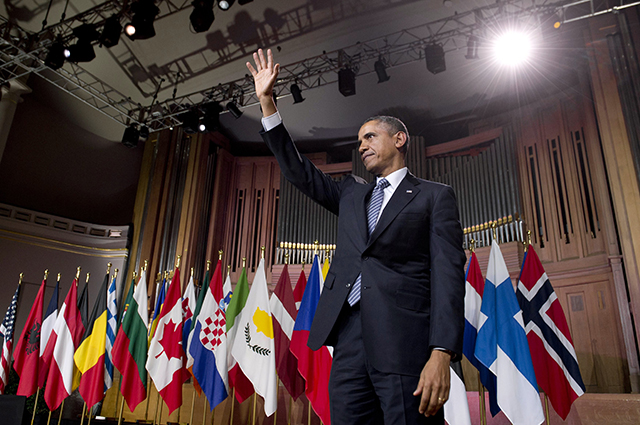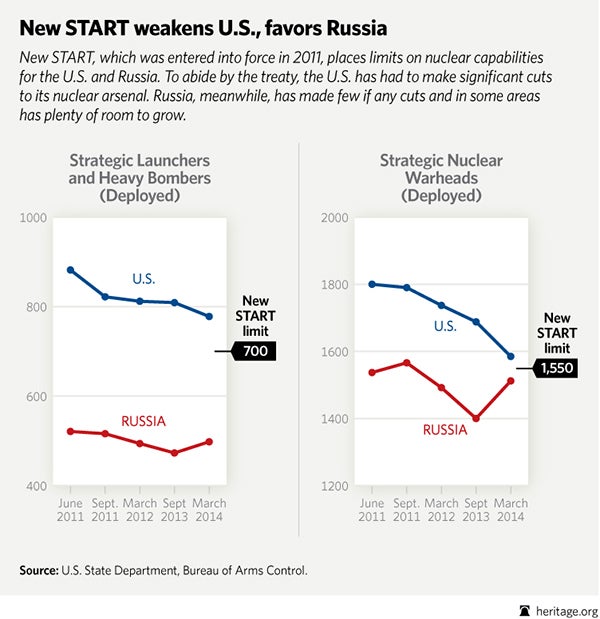This week marks the 4th anniversary of the New Strategic Arms Reduction Treaty (New START) with Russia. Given the abject failure of this treaty, it seems appropriate that the administration chose this week to release its equally misguided plan for U.S. strategic force structure.
Even before the ink on the treaty was dry, experts warned that, under New START, the U.S. would have to bear the majority of nuclear reductions while Russia will be permitted to actually increase its nuclear stockpile. Time has justified these concerns, as Russia has launched the most extensive nuclear weapons modernization program since the end of the Cold War.
Over the course of the last four years, the U.S. has engaged in a unilateral reduction of its nuclear weapons. Meanwhile, Russia has violated its arms control obligations, including the Intermediate-Range Forces (INF) treaty. The loopholes within New START have provided Putin with the opportunity to build up his nuclear arsenal and, therefore, undermine one of the very purposes of New START: to provide predictability in the U.S.-Russia strategic relationship. New START’s degraded verification regime further limits insight into Moscow’s nuclear weapons build-up.
With Russia’s recent invasion of Crimea, the Kremlin has demonstrated that it is willing to use brute force to dismember a national state. This behavior is a clear indication that the U.S. must recalibrate its position—as articulated in the 2010 Nuclear Posture Review—that Russia is no longer an adversary and that the potential for a conflict between the two countries is low. With Russian forces still menacing Ukraine, now is not the time to further undermine U.S. nuclear weapons posture.
This week’s new strategic force structure claims to maintain “flexibility” for U.S. nuclear forces. In reality, it reduces all three legs of U.S. nuclear triad: intercontinental-range ballistic missiles, strategic bombers, and submarine-launched ballistic missiles. The U.S. should advance its strategic interests by modernizing its nuclear arsenal. More than 30 countries around the world rely on U.S. defense assurances, which allow some to forego developing their own nuclear weapons capabilities.
The U.S. should withdraw from both New START—a treaty that only serves Russian interests—and the INF Treaty, which Russia is currently violating.


























